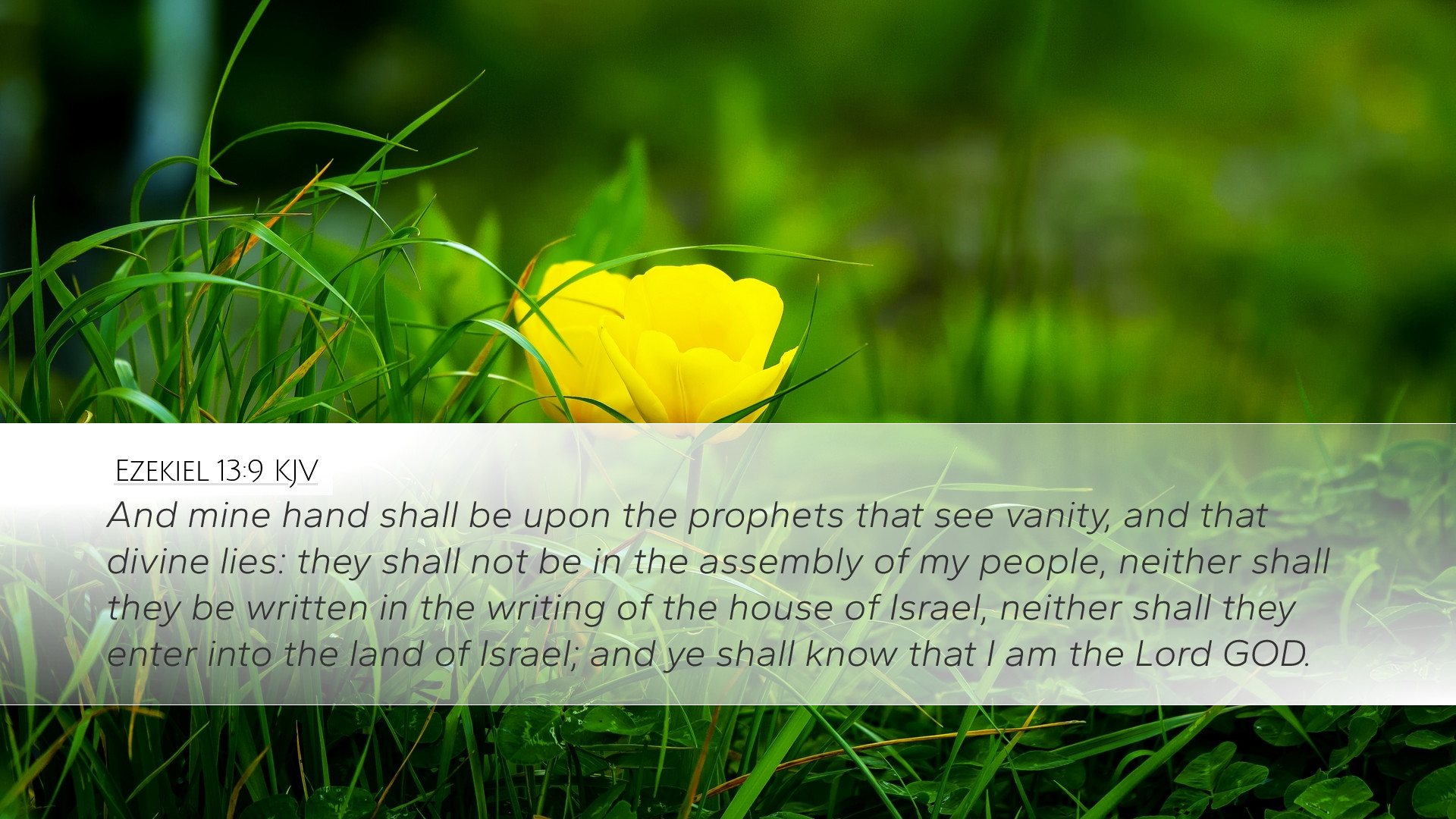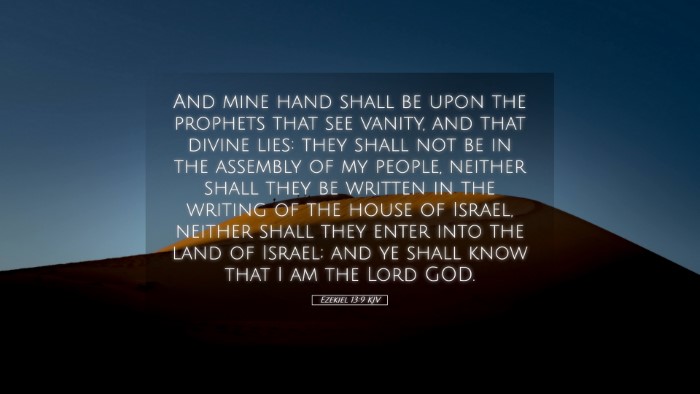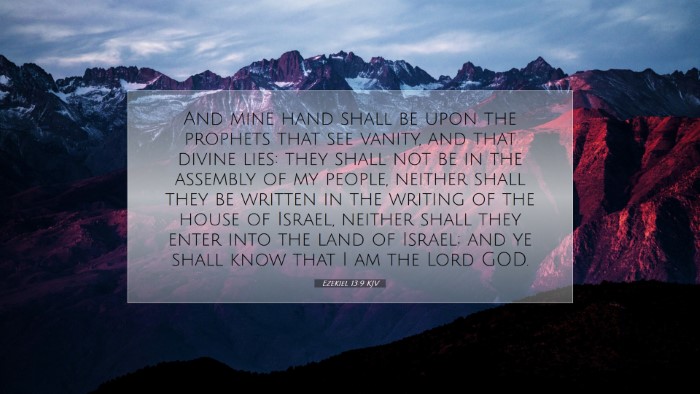Commentary on Ezekiel 13:9
Bible Verse: Ezekiel 13:9 - "And mine hand shall be upon the prophets that see vanity, and that divine lies: they shall not be in the assembly of my people, neither shall they be written in the writing of the house of Israel, neither shall they enter into the land of Israel; and ye shall know that I am the Lord God."
Introduction
The book of Ezekiel, written during the Babylonian exile, provides a prophetic voice warning against falsehood and promising judgment on the unfaithful. Ezekiel 13 addresses the role of false prophets and their deceitful practices. The passage underscores the seriousness of God’s judgment against those who lead His people astray.
Contextual Analysis
This verse is part of a larger discourse where God speaks against the prophets of Israel who claim to speak in His name but do not represent His will. The chapter reveals the divine intention to expose falsehood and to preserve the integrity of His covenant community.
Key Themes
- False Prophets: Ezekiel criticizes those who "see vanity" and "divine lies," emphasizing the danger they pose to the community.
- Divine Judgment: The declaration that God's hand will be upon these prophets indicates His active engagement in judgment.
- Exclusion from God’s Community: The phrase "they shall not be in the assembly of my people" highlights the consequences of false prophecy—separation from the community of believers.
Insights from Public Domain Commentaries
Matthew Henry's Commentary
Henry notes that the phrase "my hand shall be upon the prophets" signifies God's direct action against false prophets. They are described as those who lead the people astray with deceptive visions and empty promises. Henry emphasizes that these prophets speak not from God but from their own deceitful hearts, affirming that God will bring them to judgment.
Albert Barnes' Notes on the Bible
Barnes elaborates on the idea that the false prophets will not be "in the assembly of my people," indicating a total rejection from the community and the blessings associated with it. He asserts that the imagery of being "written in the writing of the house of Israel" symbolizes an irrevocable exclusion from the covenant community. This serves as a warning to those who inaccurately claim God’s approval of their prophecies.
Adam Clarke's Commentary
Clarke provides an in-depth interpretation of the imagery presented in this verse. He points out that the "vanity" seen by the prophets portrays the futility of their visions, which lead people away from true worship. He further explains that God's decision to exclude them from the land of Israel underscores His commitment to uphold the holiness of His people, reinforcing the seriousness with which He views falsehood and deception.
Theological Implications
This verse prompts deep theological reflection on the nature of prophetic ministry and the responsibilities associated with it. Divine oversight ensures that false claims are ultimately revealed, raising significant questions about accountability in spiritual leadership today. The exclusion from the assembly calls into question the criteria for belonging to God's people and the necessity of authenticity in faith.
Relevance for Today
For pastors, students, theologians, and scholars, this passage serves as a somber reminder of the importance of sound doctrine and the integrity of prophetic voices in the church. The principles outlined in Ezekiel 13:9 remain pertinent, encouraging leaders to seek truth and clarity in spiritual matters to protect their congregations from deception. Furthermore, the need for discernment becomes crucial in an age where many voices claim divine authority.
Conclusion
Ezekiel 13:9 encapsulates a powerful warning against false prophets and underscores the gravity of fidelity to God's truth. By reflecting on insights from historical commentaries, we can better understand the implications of this verse and its applications in our contemporary context. This passage serves not only as a call to vigilance but also as an assurance of God's sovereignty in overseeing His people and safeguarding His covenant community.


